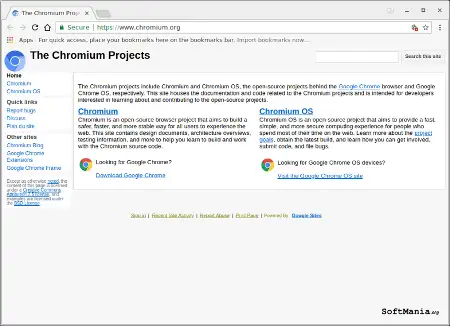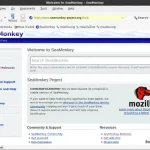Last Updated on: 17th November 2023, 07:47 pm
Web site: www.chromium.org
Category: Network
Subcategory: Web browsers
Platform: Android, BSD, Linux, OS X, Windows
License: BSD, GPL, LGPL, MIT, MPL, MS-PL
Interface: GUI
First release: September 2, 2008
Chromium – an open-source browser project that aims to build a safer, faster, and more stable way for all Internet users to experience the web. Google’s browser Chrome is built from the Chromium source code and the Chromium releases appear essentially similar to recent releases of Google Chrome, bypassing specific additions from Google, the most notable among them are: Google brand, automatic update mechanism, licensing terms, usage tracking, built-in PDF reader and integration with Flash Player. Chromium uses the WebKit engine.
Chromium (Latin: chromium) is the name given to the open-source project and the browser source code released and maintained by the Chromium Project, which is headed by Google developers, with input from community developers. Google’s intention was, as stated in the technical documentation, that Chromium be the name of an open source project and the name of the final product was Chrome. However, other developers have taken the Chromium source code and released versions under the name Chromium.
A part of Chromium, which was authored by Google is released under the BSD license, with other parts subject to other open licenses, including: X11, LGPL, Ms-PL and the three-way license MPL/GPL/LGPL.
Many developers have compiled Chromium’s open source code and made own versions of the web browser under new names, such as: CoolNovo, Comodo Dragon, Flock, Opera, Iron, Min, Rockmelt, SlimJet, Vivaldi.






there are so many chromium clones, giving unique features, more or less functions and privacy, they are still dot exist without the chromium base…